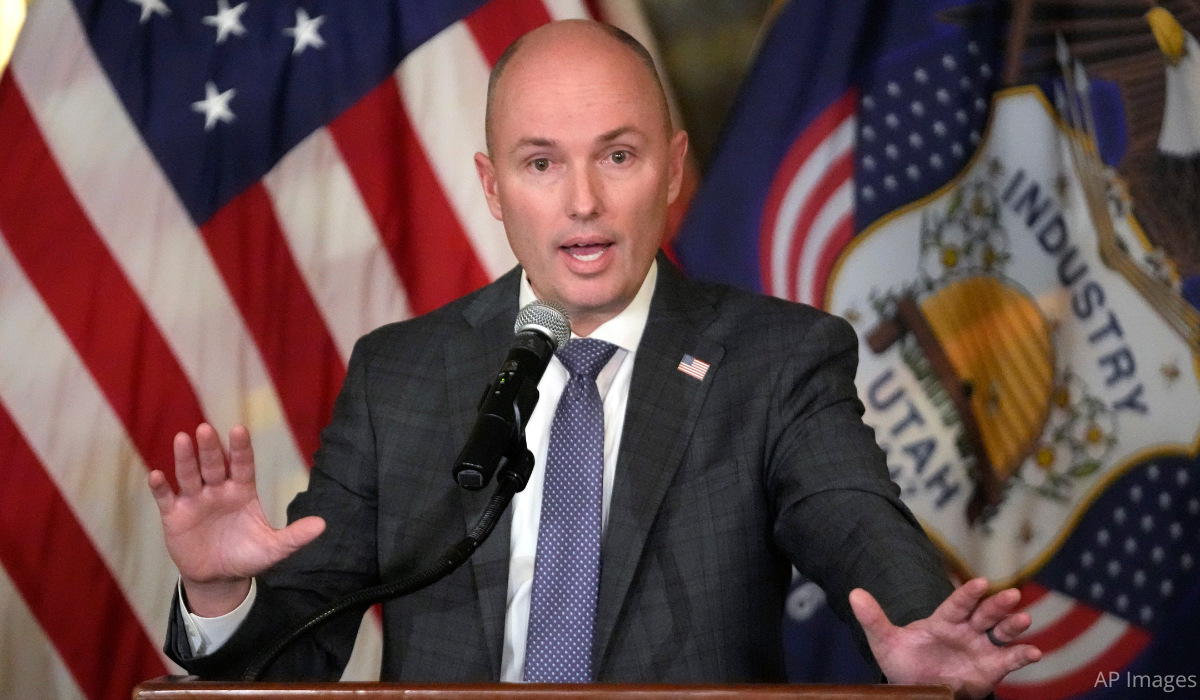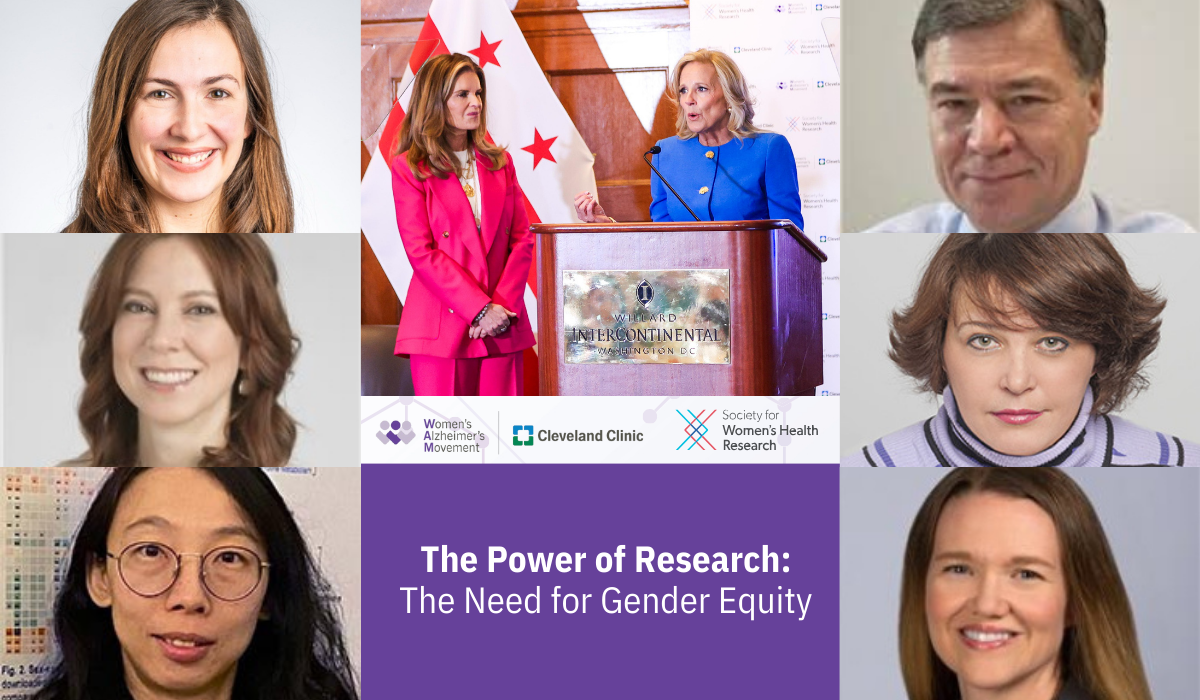How to Disagree Without Being Mean: Governor Spencer Cox Has the Playbook
Back in 2020, Republican Spencer Cox and Democrat Chris Peterson were running against each other to be Utah’s governor when Cox suggested something crazy: a joint TV commercial.
In the spot, each candidate told Utahans that while they disagreed with one another, they didn’t hate each other. They also committed to accepting the results of the gubernatorial election and pledged to uphold the peaceful transfer of power.
The commercial went viral. But it did something else for Cox, who won the election and is now Utah’s governor: It strengthened his belief in the power of respectful disagreement, and his conviction that better disagreements are the antidote to our increasing polarization.
With the Iowa Caucus behind us and an election year officially here, we sat down with Governor Cox to ask him about the initiative he launched as chair of the National Governors Association, Disagree Better, and how all of us—from our politicians debating the issues on the local and national level, to each one of us hashing out those same issues on social media and at our dining room tables—can collectively stay open to others’ viewpoints.
A CONVERSATION WITH GOVERNOR SPENCER COX
You are known for your “respectful disagreement” approach and founded the National Governors Association “Disagree Better” initiative. How did you learn how to have healthy conflict?
Well, being in politics, conflict is all around me. But I think learning about healthy conflict goes back to my childhood. I'm a child of divorced parents, so I learned at a very young age how to negotiate some very tough disagreements that were happening.
As I came into politics, I started to see how toxic things were getting, and I started looking for good examples of conflict resolution and how to do things better. One of the people I've read and studied the most is Martin Luther King Jr. His sermon, “Loving Your Enemies,” is one of the best and most complete arguments about why healthy conflict is better than unhealthy conflict—even when it comes to things we're very passionate about.
With Disagree Better, we've tried to take all of the things we've learned, bring in the experts, and turn it into an initiative that could help politicians especially—but all of us, really—disagree in a healthier way.
The Iowa Caucus is now behind us—and the mudslinging has commenced. What’s your best advice for those who want to rise above the noise this election year?
Be conscious of the content you consume and produce.
When it comes to consumption, I tell people to turn off cable news. My wife and I did this and it improved everything—our marriage, our family life, everything. There’s so much contempt on cable news that eliminating just that piece made us better people. Social media also plays a role, and it’s important to be more conscious of what you’re consuming and posting.
Whether we’re talking to others or posting on social media, a red flag to watch out for is the othering that so often happens. Statements like, “Those people are trying to destroy our country,” should make you pause. The same is true when somebody refers to Republicans writ large or Democrats writ large. This should perk you up and prompt you to think cautiously about what is actually being said.
What is your best piece of advice when it comes to having a healthy debate or productive disagreement with someone—whether about politics or something else?
Be curious. The way to do this is to respond with the following: Tell me more.
Simply saying, “Tell me more about what you believe,” has the ability to change everything for a few reasons. One, it gives me an opportunity to calm down. I'm a fighter who likes to punch back; I'm a trial attorney. So it's really easy for me to fight. But when I say to someone, “Tell me more,” I calm down.
This statement also signals to the other person that I am curious and really want to know what he or she believes. Taking that interest in their viewpoint means they're going to feel better about our interaction.
Responding this way also requires the other person to actually think about what they're saying. Oftentimes people will say something because they heard it on social media, or because that's what their political party says they’re supposed to believe or say. Saying “Tell me more” means they have to think about why they believe what they’re saying and get down to the core of what they’re saying.
And once we do that—once we get down to the core of why we believe something—it usually leads to common ground. Maybe someone believes what they’re saying because they love their country, they love their leader, they love their community. It might make you think, I love my country, my leader, my community, too.
And finally, asking someone to tell you more usually means they'll give you an opportunity to tell them more. That is respectful disagreement, which is better for all of us.
Our conflict has become so intense and divisive that many of us forget the fact that healthy conflict leads to better policies…
One of the push backs I get about the Disagree Better initiative is that it's just a civility initiative—that I just want people to get along and that I'm prioritizing being kind over disagreement.
That’s not true at all. We chose the name Disagree Better because we want people to disagree. Our entire system of government was designed around using conflict in positive ways to drive better outcomes. We are supposed to have a healthy tension, with checks and balances between the executive branch and the legislative branch. Conflict is built into what we're trying to accomplish. Government needs people to push back, and we need to avoid shutting down ideas.
In fact, experts tell us that people who learned how to debate in high school and college are much less polarized because they learned how to see the other side of an argument. That's how we get to better policy, too—by challenging ourselves, trying to find ways to work together, and coming up with solutions that will benefit more people than just our own narrow segment of our population.
Bipartisan governing feels like a pipe dream these days. Do you think it’s possible?
I have to think it's possible. I'm optimistic because we've done it before, and we've done it during times of crisis.
The data shows us that 70 to 80 percent of Americans are part of what we refer to as the “exhausted majority”—they hate what they're seeing in politics right now. I believe our politicians are a reflection of “We the People,” and if the people want things to change, they will demand that change. But I agree neither party is offering that change right now.
What I can tell you is that as I've launched this initiative, so many governors on both sides of the aisle have come to me and said, “We like this. We need more of this. We want to support this.” In fact, we have dozens of governors doing ads together now—Republicans and Democrats who are finding a way to work together. I've also had members of the Senate and Congress reach out to me and say, “Hey, can we work together on some of these issues? Let’s show people there is a way to do this.”
So, there are some small signs of spring after a long, dark winter. I just hope we don't we don't kill all of those new shoots sprouting up in an ugly 2024 presidential election.
What’s it going to take for more Americans—for all of us collectively—to stay more open to viewpoints from the other political side?
First of all, I think we need to remember that we get to choose as individuals what we say and do. What each of us says or posts on Facebook in the morning has far-reaching impacts. It's important for people to understand that that we are part of this big cog, and each of us plays a role in how it works.
I also think we must rely on institutions we’ve historically built. Religion is one institution where people with different identities have always come together to share something. Volunteering is another way. When you're serving other people—and serving side by side with someone who thinks differently than you do— the animosity falls away.
So, what’s it going to take? I think we just have to get back to the core of who we are. As Maria's brother, Tim Shriver, has said before, “There's nothing more un-American than hating our fellow Americans.”
I believe that that's true. We just need to be reminded of this.
Spencer James Cox is an American lawyer and politician serving as the 18th governor of Utah since 2021. To learn more, visit governor.utah.gov.




